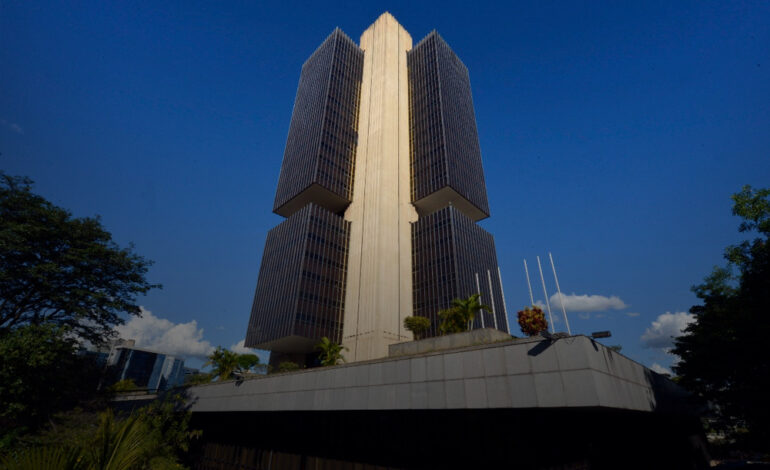Who loses with the threat to the Central Bank's autonomy?

Recently we saw President Lula criticizing the autonomy of the Central Bank after the last decision of the Copom (Monetary Policy Committee), which maintained the basic interest rate (Selic Rate) and signaled its maintenance throughout the year, given the increase in inflation expectations. It was the first decision of the independent collegiate under the new government with the board of directors chosen by the previous government, with a four-year mandate.
This criticism by President Lula of the President of the Central Bank is read by the market as a leaden exchange between the two. The Central Bank signals concern about the direction of the economy and the President of the Republic replies with complaints about the independence of the Central Bank. This exchange of barbs, besides being unnecessary, is absolutely inconvenient. It damages the country, causes insecurity and ends up penalizing the consumer, with the reflection of this instability in the expectation of inflation and, consequently, in the increase of interest rates. It is a situation in which everyone loses. The president of the Central Bank loses, because despite his legal independence, there will be, in the coming months, the need to change the directors of the bank at the end of their respective mandates. Clearly, the president of the Central Bank, in this guerrilla scenario, will have no say in the choice of new directors and may have to live with members of a technical position opposite to his own, to say the least. The President of the Republic loses, because besides signaling a retrograde posture in comparison with world practices, remembering that the international market credit rating for a country takes into account the independence of the Central Bank, he buys a fight that he doesn't need. Brazil is not alone in this situation. The whole world is fighting against escalating prices. Just a few months before Minister Haddad's promised announcement of the fiscal adjustment program, the discussion about the independence of the Central Bank doesn't generate any benefits; on the contrary, it may give the impression that the program will be unattractive. The perception of fiscal risk affects market interest rates, which at the end of the day impacts the worker's pocket. If there is the prospect of price increases, people end up spending more quickly, which increases inflation and with it rises interest rates.
Attacking the independence of the Central Bank reinforces the need for its autonomy

The attack on the independence of the Central Bank, paradoxically, only reinforces the need for its independence. In a short time, it has already proven to be healthy. The mismatch between monetary policy and the political cycle mitigated major damage to the economy last year, due to the fierce electoral dispute. Did Lula believe that with one month in office Copom would lower the basic interest rate, just because of the existence of a new government? But then why this aggressive position of President Lula? Some will say that he is finding a "scapegoat" because he knows that the economy will not grow as expected this year and this would cause a lot of damage to the government's popularity, an essential tool for the clashes with the National Congress. Others say it is a way of pressuring the Central Bank, which has already softened its tone in the published minutes, and that the Finance Minister would act in concert with President Lula, in the classic blow and blow style. The fight is about high interest rates and not about the independence of the Central Bank. Revising the law that approved it would generate so much political wear that it could be said to be unfeasible.
There is no one who disagrees that interest rates are too high. Brazil has the highest real interest rate in the world. It is high time to lower it. That market agents generate panic under the allegation of the need for a strong fiscal adjustment is understandable, since these same agents are the ones who benefit from high interest rates, as can be seen in the recent results of Banco Itaú. But what is surprising is how little the business class resonates in this debate. They, who are the real productive agents and are penalized with high interest rates, have not made the expected chorus with President Lula. In the midst of this confusion, what should happen in the next Copom meeting? If the interest rate is lowered, it may look like submission to pressure. On the other hand, if it is not lowered, it will give the idea of wounded pride to the president of the Central Bank. So what is the way out? The resignation of the president of the Central Bank? If this is the way out, the press is buying President Lula's wishes, because for more than a week now there has been no talk of anything else. Lula has shown himself to be a strategist.
The government has signaled an increase in spending and investment, which is important for the country, because it stimulates economic activity, which, in expansion, increases the consumption of goods and services, employment, and income. But, at the same time, it demands a public deficit containment program, still unknown. Hence the importance of aligning the interest rate policy with the government's economic policy, in order to facilitate the approval of the fiscal adjustment program in the National Congress. The risk of misalignment is that the basic interest rate determined by the Central Bank affects the increase in Treasury spending on servicing its debt, which would impact a more rigid fiscal adjustment, with difficulty in being approved by Congress and, consequently, wear and tear on the Federal Government and President Lula.
Criticism of high interest rates is correct, but cannot be a threat to the Central Bank's autonomy
Nominal interest rates are really high (13.75%) and any criticism of this number is correct. But to criticize the independence of the Central Bank is another thing. Even because, this autonomy does not give it the right to do anything and everything it wants. Copom has to make its decisions following the goals defined by the National Monetary Council (CMN), among them the inflation target, whose current composition of the CMN is the Minister of Finance (Fernando Haddad), Minister of Planning and Budget (Simone Tebet) and the president of the Central Bank himself (Roberto Campos Neto). Thus, the President of the Republic can concentrate his actions on the National Monetary Council so that it defines its targets in line with the economic objectives of the Federal Government, which will thereby influence the decisions of Copom.
It is too early to draw up diagnoses of the new government, especially because in this first month, the legitimate concern was with the attacks on democracy. But the president will need skillful interlocutors to circumvent avoidable wear and tear. If from the political point of view President Lula's attacks may be having the effect of forcing a negotiation between the president of the Central Bank and the Finance Minister, it is not expected that President Lula will wear himself out all the time to make his government policies viable. After all, he has put together a ministry with many political heads that should publicly support him in this crusade against high interest rates. Turbulence generates winners and losers, but society will certainly not be among the beneficiaries of a confrontational president. It is worth remembering Lula's own campaign mantra of "credibility, predictability and stability".



1 Comment
Dear Mauricio, congratulations on the blog initiative. Excellent and diversified subjects, very clean site visual, and very good content. Certainly a success! Big hug!